Much can still go wrong around the upcoming Trump-Kim Jong-un summit. The risks of war are higher now than before the drive to the summit. But diplomacy can still succeed, argues Bruce Jones. This piece originally appeared in the Nikkei Asian Review.
So what happens now with the diplomatic poker game over the Korean Peninsula? All is not yet lost for negotiated solutions, but the risks are mounting.
A month ago, I warned in the Nikkei Asian Review of the dangers of summit diplomacy, soon after news broke of the planned meeting between U.S. President Donald Trump and North Korean leader Kim Jong Un.
No one likes to speak out against diplomacy and the pursuit of peace, especially when a real threat of military confrontation looms; but the long history of diplomacy and war tells us that ill-prepared summits readily break down, and when they do, those failures help pave the way to war.
Those risks grew on May 25 when Trump sent a letter to Kim. It was an astonishing text, unique in the annals of contemporary international politics; a letter-length tweet in the tone of voice of a petulant teenager who has been spurned by a girl, calling off their planned date but holding open hope of a new one: “please do not hesitate to call.”
The first phase of Trump’s efforts on North Korea were unusual for his presidency: They took place largely in private, involved in-depth briefings and a lot of listening, and largely avoided Tweets. Ever since his U.N. General Assembly speech last September, however, Trump’s mercurial personality has been more front and center in the drive to diplomacy. That led to an escalation of rhetoric, and of risks.
Ultimately, that escalation of risks created an option for diplomacy. Ironically, Trump’s credible threat of the use of force drove South Korea to the table, desperately seeking a diplomatic solution that would avoid the calamity of war on the Peninsula. With a desperate South and a China seeking to placate an intemperate U.S. president, Kim sensed and seized the opportunity, in short order meeting South Korea’s President Moon Jae-in and President Xi Jinping of China.
The meeting of the two Korean leaders produced only a watery agreement to agree at a later phase on issues to be agreed. But Kim was riding high, and Trump moved to get in on the act with his own offer of a summit, followed by a stunning indication that the U.S. was willing to pull its troops out of the South in exchange for denuclearization—basically meeting Kim’s terms.
That is when things started to fall apart. Although Trump himself is clearly willing to negotiate away the U.S. troop commitment to the South, the rest of his team—and indeed, the entire rest of the U.S. political system—is not, and the system pushed back, hard. That includes new National Security Advisor John Bolton. There has been a lot of commentary about how with Bolton he has found a like-minded national security advisor; but that is inaccurate. Bolton is like-tempered, to be sure; but except for Iran, when he shares Trump’s contempt for the nuclear pact (the Joint Comprehensive Plan of Action), Bolton rejects Trump’s anti-alliance, anti-leadership posture as much as his predecessor, Gen. H.R. McMaster. And neither Bolton nor Gen. John Kelly, the White House chief of staff, nor Defense Secretary James Mattis were about to let Trump trade away the American position in South Korea, and certainly not for hollow statements from Kim about the future promise of denuclearization.
Bolton laid this bare when he spoke on the American weekend news shows about the “Libya model” of denuclearization. Perhaps it was poorly chosen phraseology, since Libya eventually became the subject of U.S.-led regime dismantlement, as former leader Moammar Gadhafi was overthrown and killed.
But what Bolton was actually saying is a view far more widely held: that only rapid, verified, complete dismantlement and removal of North Korea’s nuclear infrastructure constitutes an acceptable outcome on the Korean Peninsula.
Kim reacted furiously, blasting Bolton and the U.S. as a whole. And in so doing, Kim managed to reveal that the North is still hewing to its long-held position that it will only pursue genuine denuclearization in exchanges for an end to the U.S. alliance with the South. Long-time North Korea watchers were wholly unsurprised.
Now what? I do not rule out that we still see a Singapore summit on June 12, or thereabouts. There are silver linings here. An underappreciated one is that over the past year, Kim’s dramatic escalation of testing and risk-taking has pushed China’s underlying position closer to the U.S’s. Whereas China long viewed denuclearization as its third priority in the Peninsula, after stability and peace, many within the upper reaches of Chinese foreign policy now recognize that there will be neither peace nor stability unless Kim denuclearizes in full.
Of course, there are still important differences between the U.S. and the Chinese positions: The U.S. is offering an easing of sanctions and economic openings only after full denuclearization, whereas China believes that Kim should get step-by-step benefits for his moves to diplomacy, and has already eased border sanctions as recognition for his coming to the table.
And Kim must now recognize that he is not playing with quite the strong hand he thought. Look past the cringe-inducing tone of the letter, and the fact is that Trump has, in his own strange way, managed to convey the following things to Kim: He is genuinely willing to go to war; he is genuinely willing to make peace; and he is willing to walk away from a deal if it is not a good deal. That confronts Kim with an existential choice: a genuine deal, or war.
Much can still go wrong. The risks of war are higher now than before the drive to the summit. But diplomacy can still succeed, if Trump allows Secretary of State Mike Pompeo and his team to drive the strategy, and allows Pompeo and Bolton to wield the Trump personality as a negotiating lever. On North Korea, we have seen disciplined Trump, unpredictable Trump, and petulant Trump. If Pompeo, Bolton and Mattis can do enough to reassure South Korea and Japan; if Trump himself maintains his relationships with Xi; and if the team plays their unwieldly and tempestuous president cleverly, this is the one arena where the “mad man” theory of the presidency can produce results. If it fails now, we are well on our way to war.
The Brookings Institution is committed to quality, independence, and impact.
We are supported by a diverse array of funders. In line with our values and policies, each Brookings publication represents the sole views of its author(s).

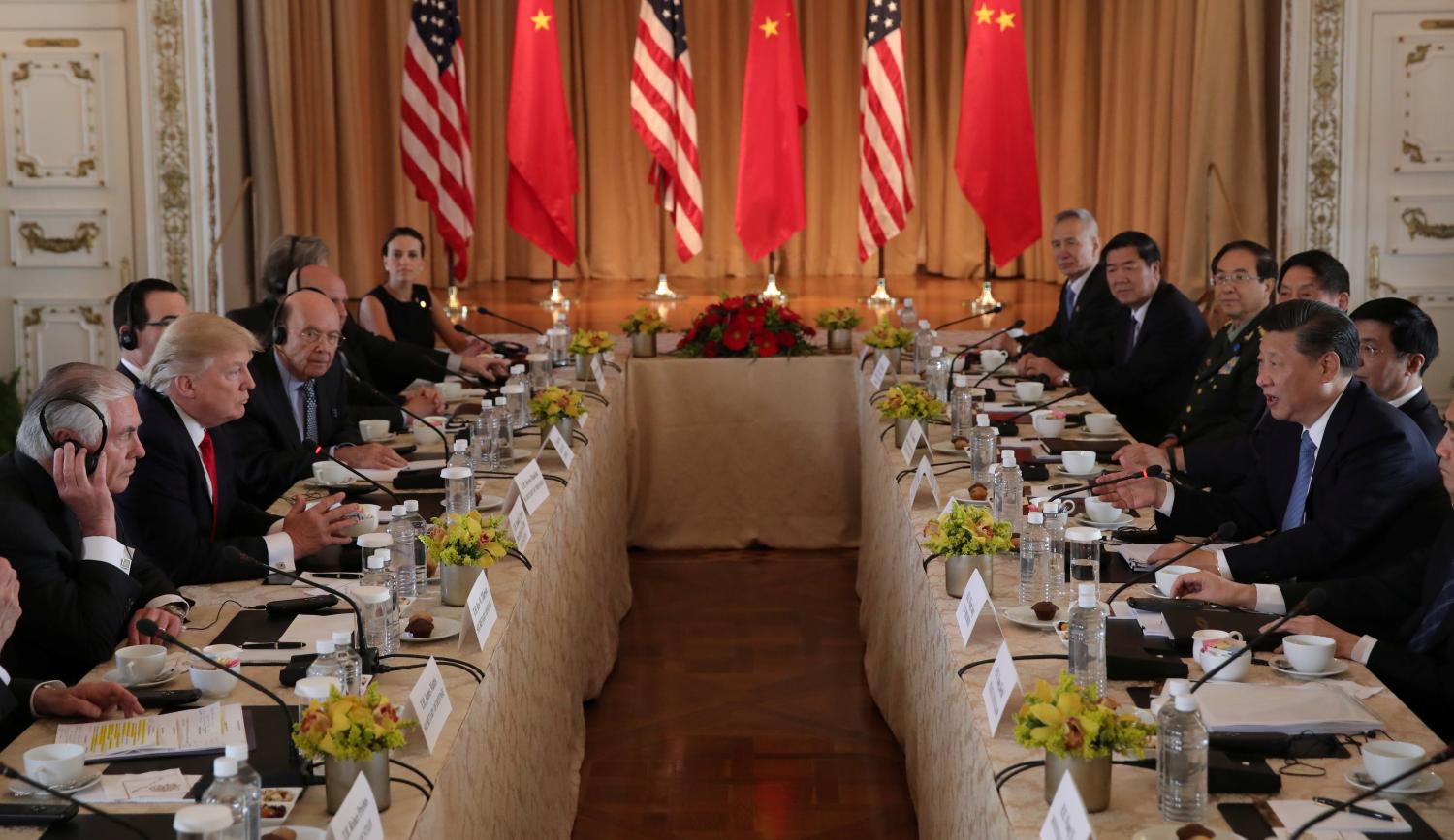
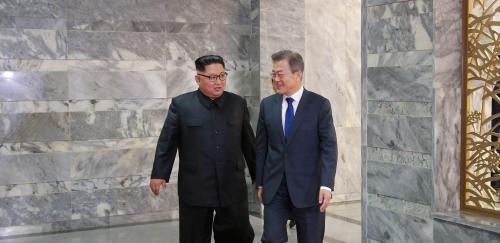
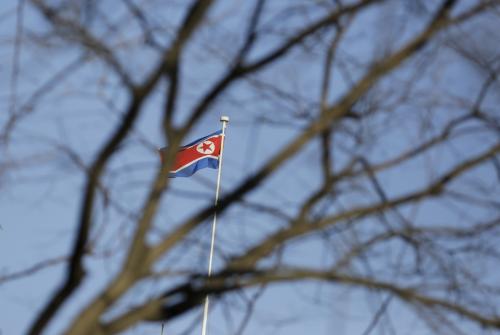

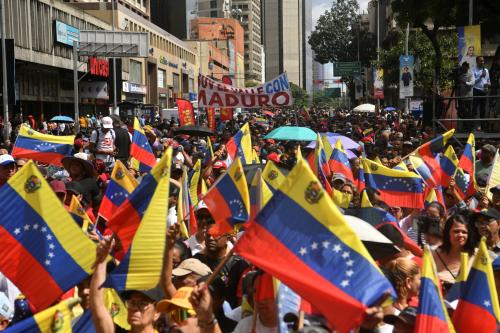
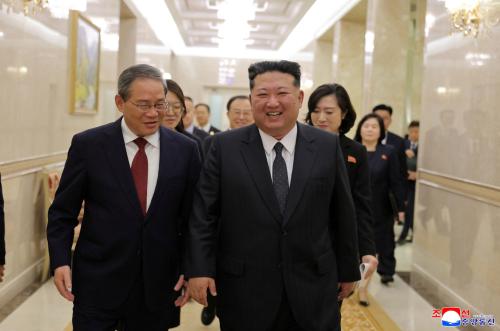
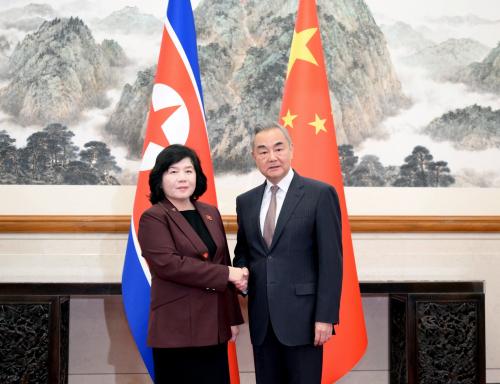
Commentary
Diplomacy can still succeed with North Korea, but risks are mounting
June 4, 2018